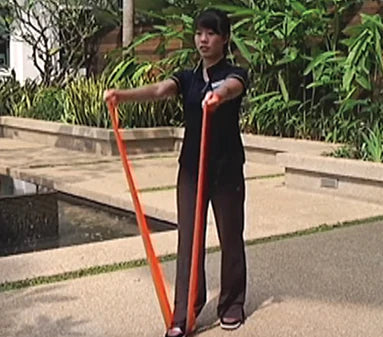Turns out, developing tennis elbow is not reserved solely for the Serena Williams’ of the world. You don’t have to be a tennis, squash, badminton, or even racquet ball enthusiast to feel debilitating elbow pain that can make doing everyday activities nigh impossible. All you need is a job that requires constant, repetitive motions that will overuse the forearm tendons. Unfortunately for those who work in the office, this applies to pretty much everyone.
What is Tennis Elbow?
Medically known as lateral epicondylitis, tennis elbow is classified as a Repetitive Strain Injury (RSI). As the name suggests, RSIs are caused by repetitive motions and are mostly found in workplaces where employees are performing the same task or motion for the better part of the workday. The cause of tennis elbow is repeated contractions of the forearm muscles that you use to straighten and raise your hand and wrist. The repeated motions and stress to the tissue may result in a series of tiny tears in the tendons that attach the forearm muscles to the bony prominence at the outside of your elbow. For those of you in the office, take a second and look over at your mouse. Is it over to the right or left of your keyboard? I’d venture to guess it is. Now take your hand and grab your mouse, move it around a bit, then bring it back to your keyboard. Easy right? Well unfortunately those are the repetitive motions that can cause you to develop tennis elbow. Don’t panic. Luckily, tennis elbow symptoms develop slowly over weeks or months, and if caught early are easily mitigated.
What Are The Symptoms?
The symptoms of tennis elbow are easily identifiable and easily solvable if addressed.
-
Pain or burning on the outer part of your elbow.
-
Weak grip strength.
-
Pain that creeps from the elbow to the forearm
-
Inability to perform activities like turning a doorknob, hold a coffee cup, etc.
-
Sometimes, elbow pain overnight.

All these sound like a pretty bad time, especially if it gets to the point where performing everyday tasks become almost impossible. Let’s look at the common causes of tennis elbow to make sure you know how to avoid it.
What Causes Tennis Elbow?

There are a few activities that seem to cause tennis elbow at a higher rate. Some are work-related, some are recreational, the one thing they have in common is that the forearm is always being overworked.
-
Cooking and using knives to prep food.
-
Tennis and other racquet-based sports (Duh!)
-
Repeatedly using hand tools (scissors, screwdrivers, etc.)
-
Intensive computer mouse use for extended periods of time.
What To Do If You Feel Symptoms
-
Rest: Make sure to try and reduce the number of tasks or activities that are causing the issue in the first place. This is much easier to accomplish in recreational activities, sometimes it is unavoidable at work.
-
Medication: Acetaminophen or anti-inflammatory medications (such as ibuprofen) may be taken to help reduce pain and swelling.
-
Physical therapy: Specific exercises are helpful for strengthening the muscles of the forearm. Your therapist may also perform an ultrasound, ice massage, or muscle-stimulating techniques to improve muscle healing.
-
Equipment: For people experiencing tennis elbow in the office, something as simple as changing the mouse used can be the difference between feeling like you’ve been playing at Wimbledon for the past decade and being comfortable at your workstation




Leave a comment
Laman ini dilindungi oleh hCaptcha dan tertakluk pada Dasar Privasi dan Terma Perkhidmatan hCaptcha.